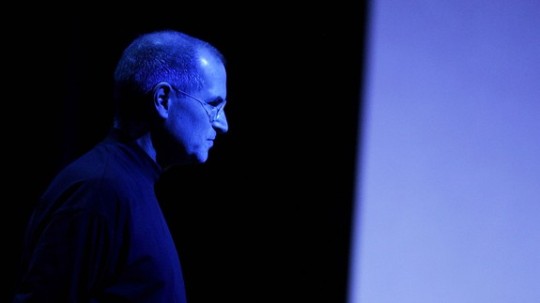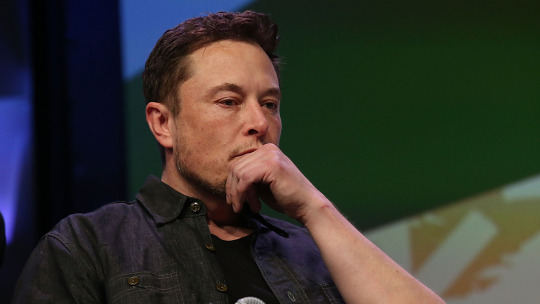#_uuid:a425c0c7-193e-3556-977d-bfc2468f5eba
Text
Genius or manchild? Reconsidering Steve Jobs after his daughter's book

The statement from Steve Jobs' widow arrived via email, unrequested, in the middle of Labor Day. "Lisa is part of our family, so it was with sadness that we read her book," it began, the "we" referring to Laurene Powell Jobs and her sister-in-law, the novelist Mona Simpson. "The portrayal of Steve is not the husband and father we knew," it continued. "Steve loved Lisa, and he regretted that he was not the father he should have been during her early childhood."
It's what any PR expert would call "getting ahead of the story" — the story being Small Fry, an autobiography by the Apple founder's first child Lisa Brennan-Jobs, daughter of Christine Brennan, which was released the next day. Never mind that Lisa was technically part of Steve's family circle before either Laurene or Mona (younger birth sister to Steve, who was put up for adoption). If you get your riposte in first, the advice goes, you control the narrative.
SEE ALSO: Lisa Brennan-Jobs shares tangled memories of her imperfect father, Steve Jobs
But as any journalist would tell you, it's the kind of statement that gets our spidey senses twitching, more for what it wasn't saying than what it was. It didn't refute any specific allegation in Brennan-Jobs' book. It didn't have anything to say about Powell Jobs telling Lisa "We're just cold people," or her regret that she married Jobs too young, or any one of a dozen scenes in which she does little to prevent her husband's controlling, heartbreaking, manchild-like behavior toward her stepdaughter.
As I discovered when I sped-read the thing so you don't have to, the statement had nothing on the book. Small Fry recounts simple scenes in Lisa's life in an unhurried fashion, with a novelist's eye for detail. (She openly admires her author aunt Mona, even after Mona writes a fictional version of Lisa's life without asking.) In contrast with most tell-all autobiographies, this one actually suspends authorial judgment.
What a relief that is, especially in 2018. Lisa Brennan-Jobs is the anti-Omarosa. Her book is an even-handed, surprisingly poetic, quietly devastating record of the witness that she bore, and is now sharing with us.
This testimony will make most readers think differently about Jobs. And in the age of Trump and #MeToo, Small Fry is another good example of why we should stop forgiving or enabling powerful men who act like assholes toward women and refuse to grow up.
"You get nothing!"
From an extract in Vanity Fair and an interview in the New York Times, we already knew a few of Small Fry's more shocking moments. Jobs bullied and gaslighted his daughter throughout her childhood — at first denying his paternity and child support payments, then repeatedly denying that he named the Apple Lisa computer after her. The lie tortured Brennan-Jobs until Bono, of all people, made him 'fess up.
But the shock of the big stuff is nothing compared to the accumulation of small details, through which you feel you're living Lisa's childhood and teenage years. She went to live with her father and Powell-Jobs during middle and high school, on condition that she stop seeing her mother. Her self-doubt and loneliness are painfully, almost claustrophobically real. She develops a tic where she can't control her hands, and breaks many glasses. She feels unable to breathe when her father pays her attention or affection. (More often he didn't, even point-blank refusing to swing by her room and say goodnight to her.)
Stuck in a cold bedroom because Jobs wouldn't fix the heat, made to wash all the dishes because he wouldn't fix the dishwasher (in high school, Lisa finally called a repair guy herself), babysitting her young half-brother whenever Laurene and Steve wanted her to, she comes across as a real-life Harry Potter — or, as she thought of herself at the time, Cinderella.
Brennan-Jobs' self-awareness in shaping her story is part of what makes her seem a reliable witness. "I was both the one hurt and the narrator of the hurt," she writes after telling a neighborhood boy her Cinderella story. "I would learn which complaints worked and which ones didn't trigger much sympathy in others."
Fundamentally, however, she is guileless and straightforward. She's lonely, she tells her father again and again. Even with a therapist sitting right there with them, it elicits no response.
Brennan-Jobs' mother almost comes off worse than Jobs. A wannabe artist who drifted from hippie boyfriend to hippie boyfriend, Christine openly admitted — usually with screaming and swearing — that she wasn't up to the task of motherhood. One time this happened when she was behind the wheel of a car. Brennan-Jobs stayed as quiet as possible, praying to a crack in the windscreen to keep them safe as her mother swerved across the road.
Lisa was lost, confused, and yearned for a connection with her remote, famous dad. But he blew up at her more often than he charmed her with trampolines and roller skate outings. "You get nothing!" he screamed at her when she asked for one of his many discarded Porsches. He became mad at wealthy neighbors who paid her way through college when he refused to do so. He made Lisa's friends cry with his insults, and he verbally assaulted waitresses while Mona and Laurene sat by, silently.
Then there's the sex stuff, which ... if it doesn't cross a line, it sidles right up to it. According to Lisa, he liked to point out to his child daughter that the Stanford tower "looks like a penis," and repeatedly told a story about a friend masturbating while watching Ingrid Bergman sunbathe. He draws his daughter a bath and later tells her she should masturbate.
And in the book's ickiest scene, he made Lisa watch as he began practically simulating sex with her stepmother, Powell Jobs. (He did much the same thing with his previous girlfriend, a woman named Tina, whom he later regrets leaving for Powell Jobs; Tina tells Brennan-Jobs that such ostentatious making out "was what he did when he felt uncomfortable.")
If I was Powell Jobs, I wouldn't want to remember my spouse that way, either. But we all have different memories of the dearly departed, especially when it comes to someone as mercurial as Jobs.
The child inside
I interviewed Jobs around a dozen times in the 2000s, when Apple was still just another tech company, before the iPhone secured his legacy. His tactics during an interview largely consisted of telling the reporter why their questions were "stupid." If you could withstand 20 minutes of this behavior, or if you started to use reverse psychology to get good quotes out of him, he'd suddenly smile: You were okay, you got it, you were in the club.
The other compelling memory I have of Jobs is him leaving a restaurant in Palo Alto. In jean shorts and a black T-shirt, with a plastic takeout bag in one hand, he idly made airplane shapes with his arms as he walked down the street. Exactly like a child.
The hectoring, reality-controlling Jobs that Brennan-Jobs writes about feels like one of the most true depictions we have. People longed to be drawn into his orbit for the good moments, the flashes of brilliance or mere attention, for which they slogged through the bad.
But maybe that isn't good enough any more. Maybe "Time's Up" not just in Hollywood, but also in the tech world. Maybe we need to stop spreading the lie that genius can only come from jerks.
In his 2012 authorized biography of Jobs, Walter Isaacson spends a lot of time considering this question: Would the Apple founder still have been a great man with a legacy of killer products if he hadn't been so cruel to his employees? If he hadn't become a millionaire in his mid-twenties? Did parking his Porsches in the disabled spots for his entire career make the iPhone happen any faster? What if he hadn't quit Apple in a snit in 1985? If he hadn't spent a decade down the rabbit hole of his failed next company, NeXT, might the modern world have arrived a little earlier?
What if he'd used his powers to motivate and inspire people with sternness, but also with love?
Brennan-Jobs tells how her father used to carry a picture of her around in his wallet, denying she was his kid even as he showed her off to others as the kid of a friend he was helping out. "He loves you," her mother said. "He just doesn't know that he loves you." It took the emotionally stunted Jobs a long time to learn what love meant. We can speculate on the reasons why, and to what extent his adoption had anything to do with it; we can also speculate whether that's just making excuses for behavior that was clearly abnormal.
At the very end of his life he apparently knew it: He cried and apologized on his deathbed, Brennan-Jobs tells us. He repeated the words "I owe you one" over and over. It's practically the textbook definition of "too late."
She has forgiven him, and the book ultimately leaves any questions of worldly remedies to the reader. But the final pages do contain the closest thing we get in this non-judgmental book to a judgment on her turbulent father (emphasis mine):
This is on all of us as a society, but men especially. We should stop giving our fellow men license to be jerks — for the sake of everyone around them, for the victims like Lisa, but also for their own sake. The more that men in positions of authority act poorly, the more they're missing out.
See Steve Jobs through his daughter's eyes and you're left with a profound sense of pity. He was a genius who didn't get what the whole family thing is supposed to be about, and he acted horribly. Nobody dared call him out for being a brat. In the future, when public figures and business leaders behave this way, we need to be less afraid of shining a spotlight on this behavior as it's happening.
Or as Jobs itself might put it, we need to learn to think different.
WATCH: Elon Musk opens up about the toll Tesla takes on him

#_author:Chris Taylor#_category:yct:001000002#_uuid:a425c0c7-193e-3556-977d-bfc2468f5eba#_lmsid:a0Vd000000DTrEpEAL#_revsp:news.mashable
0 notes